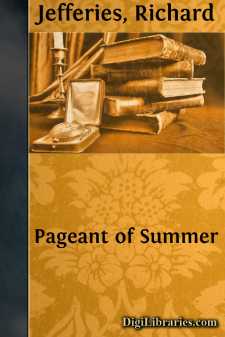Fiction
- Action & Adventure 183
- Biographical 15
- Christian 59
- Classics 6965
- Coming of Age 5
- Contemporary Women 3
- Erotica 9
- Espionage/Intrigue 12
- Fairy Tales, Folklore & Mythology 236
- Family Life 169
- Fantasy 117
- Gay 1
- General
- Ghost 32
- Historical 808
- Horror 43
- Humorous 161
- Jewish 25
- Legal 4
- Medical 22
- Mystery & Detective 315
- Political 49
- Psychological 41
- Religious 64
- Romance 160
- Sagas 11
- Science Fiction 730
- Sea Stories 113
- Short Stories (single author) 537
- Sports 10
- Suspense 1
- Technological 8
- Thrillers 2
- Urban Life 31
- Visionary & Metaphysical 1
- War & Military 173
- Westerns 199
General Books
Sort by:
by:
Henry James
CHAPTER I. He had a mortal dislike, poor Stransom, to lean anniversaries, and loved them still less when they made a pretence of a figure. Celebrations and suppressions were equally painful to him, and but one of the former found a place in his life. He had kept each year in his own fashion the date of Mary Antrim’s death. It would be more to the point perhaps to say that this occasion kept...
more...
CHAPTER I The people of Castle Barfield boast that the middle of their High Street is on a level with the cross of St. Paul's Cathedral. The whole country-side is open, and affords a welcome to storm from whatever corner of the compass it may blow. You have to get right away into the Peak district before you can find anything like an eminence of distinction, though the mild slopes of Quarry-moor...
more...
by:
Anthony Hope
A LIBERAL EDUCATION "There's ingratitude for you!" Miss Dolly Foster exclaimed suddenly. "Where!" I asked, rousing myself from meditation. She pointed to a young man who had just passed where we sat. He was dressed very smartly, and was walking with a lady attired in the height of the fashion. "I made that man," said Dolly, "and now he cuts me dead before the whole of...
more...
I. Green rushes, long and thick, standing up above the edge of the ditch, told the hour of the year as distinctly as the shadow on the dial the hour of the day. Green and thick and sappy to the touch, they felt like summer, soft and elastic, as if full of life, mere rushes though they were. On the fingers they left a green scent; rushes have a separate scent of green, so, too, have ferns, very...
more...
by:
Anne Beale
THE FARMER'S WIFE. It is an evening in June, and the skies that have been weeping of late, owing to some calamity best known to themselves, have suddenly dried their eyes, and called up a smile to enliven their gloomy countenances. The farmers, who have been shaking their heads at sight of the unmown grass, and predicting a bad hay-harvest, are beginning to brighten up with the weather, and to...
more...
Section 1 The maid was a young woman of great natural calmness; she was accustomed to let in visitors who had this air of being annoyed and finding one umbrella too numerous for them. It mattered nothing to her that the gentleman was asking for Dr. Martineau as if he was asking for something with an unpleasant taste. Almost imperceptibly she relieved him of his umbrella and juggled his hat and coat on...
more...
Chapter 1. The Wigwam Under the Rock The early springtime sunrise was near at hand as Quonab, the last of the Myanos Sinawa, stepped from his sheltered wigwam under the cliff that borders the Asamuk easterly, and, mounting to the lofty brow of the great rock that is its highest pinnacle, he stood in silence, awaiting the first ray of the sun over the sea water that stretches between Connecticut and...
more...
CHAPTER I Natalie Spencer was giving a dinner. She was not an easy hostess. Like most women of futile lives she lacked a sense of proportion, and the small and unimportant details of the service absorbed her. Such conversation as she threw at random, to right and left, was trivial and distracted. Yet the dinner was an unimportant one. It had been given with an eye more to the menu than to the guest...
more...
CHAPTER I. “First Fear his hand its skill to try,Amid the chords bewildered laid—And back recoiled, he knew not why,E’en at the sound himself had made.”— Little Helen sat in her long flannel night-dress, by the side of Miss Thusa, watching the rapid turning of her wheel, and the formation of the flaxen thread, as it glided out, a more and more attenuated filament, betwixt the dexterous...
more...
by:
Stanford Eveleth
INTRODUCTORY—1864 AND WAR TIME. The war between the North and South has sent a wail of grief into thousands of homes throughout the land, and the dreadful death-roll is daily being added to, for battle follows battle, and the slaughter is appalling, even to those who have been hardened to the sight by months of action. No wonder that the faces of wives and mothers are white with anguish—that...
more...











